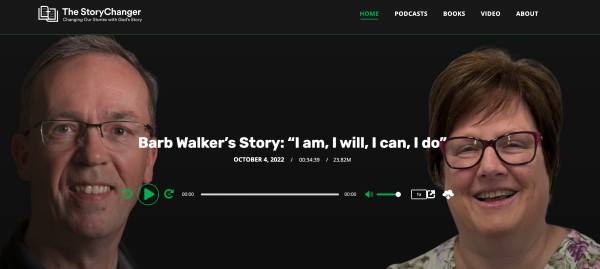INTRODUCTION
How should I pray? Is it a time of loving relationship and communion with our Savior? Or is it a time of battle and seeking salvation for others? It’s both. In his book on prayer, Tim Keller distinguishes between two different kinds of prayer. We are focused this week on battlefield prayers. Next time, we’ll look at communion prayers.
BACKGROUND
We began this series by looking at the cross. The cross answered the question , “What does it mean to pray ‘in Jesus name’?” last week we visited the throne of grace. That answered the question, “What hope do we have that God can and will answer our prayers?” This week we’re on a battlefield, answering the question, “How should we pray?”
1. WE BATTLE AGAINST SPIRITUAL ENEMIES (10-12)
Finally, be strong in the Lord and in the strength of his might. Put on the whole armor of God, that you may be able to stand against the schemes of the devil. For we do not wrestle against flesh and blood, but against the rulers, against the authorities, against the cosmic powers over this present darkness, against the spiritual forces of evil in the heavenly places (10-12).
Spiritual Enemies
Although we often misidentify our enemies as politicians, tech titans, media manipulators, false teachers, false religions, trans activists, and so on, Paul points us behind these people to the spirits that animate them. That’s what our target should be, not flesh and blood people so much as the dark spiritual rulers, authorities, cosmic powers, and forces of evil at work in this world and in the world above. They are invisible, innumerable, and incredibly motivated to destroy us physically, emotionally, intellectually, relationally, and eternally. Our attitude towards them should not be shadow boxing, or even ordinary wrestling, but rather MMA. This is the ultimate fight and we are all called to fight it.
Spiritual Aims
We know the spiritual aims of our spiritual enemies by the words Paul uses in describing his spiritual aims for us. Paul says that we are fighting against “the schemes of the devil.” Our number one enemy is totally focused on our destruction. He plans and plots against us every day. If he’s thinking so much about us, Paul is implying we should aim to think a lot about him.
The next aim is to “Be strong in the Lord and in the strength of his might.” That means our spiritual enemies are out to weaken our strength in the Lord and we are called to get strength from the Lord.
Paul also says four times that we are to “stand against the schemes of the devil” (11), “withstand in the evil day” (13), “stand firm” (13), and “stand therefore” (14). Our spiritual enemies therefore are out to knock us over, knock us to the floor, knock us back and we are called to stand firm without giving any ground.
CHANGING OUR STORIES WITH GOD’S STORY
Our enemies are powerful and evil. They are more evil and more powerful than all the evil people in this world put together. The same enemies that have motivated the most evil people in world history are targeting us. This not just training but real life combat with life or death stakes. They never call a truce, negotiate, exchange prisoners, take a vacation, fight fair, or retire. Don’t go into this under any illusions about what you are up against.
Our General is all-powerful and all-good. Being “strong in the Lord and the strength of his might” means having no confidence in our own strength but total confidence in his. It means the spirit of this seasoned General can be with us in the battle.
PRAYER IS A WAR
NOT A BAR.
This is a horrendous conflict.
Has our general provided any weapons or armor?
2. WE BATTLE WITH SPIRITUAL EQUIPMENT (13-17)
Put on the whole armor of God….take up the whole armor of God (11, 13).
Our General has fought the same enemies for many years and has designed a perfect suit of armor for the battle. Paul calls us to put it on (not just admire it) and put it all on (not just some of it). As someone who’d spent years chained to a Roman soldier, he knew what weapons and armor a soldier needed.
The belt of truth (14): This was the first part of the armor to put on, as it was essential to gather up loose clothing, support the armor, and carry the sword. The truth supplies actionable intelligence about the enemy, the battle, and the tactics that secure victory. Every truth in the Bible is part of this belt and we cannot remove one truth without weakening the belt. Don’t accept any weak substitutes such as the belt of tradition, error, superstition.
The breastplate of righteousness (14): The breastplate protected the vital organs between the head and the legs. Without it the soldier didn’t stand a chance. The thicker the metal the better and the braver the soldier. Paul is pointing to Christ’s perfect righteousness – bright, shiny, and impenetrable. Don’t try to make it an alloy.
The Gospel shoes of peace (15): A soldier can’t do anything without good shoes, ideally a combination of both strength and speed. This soldier has peace with God and a peaceful conscience through the Gospel of peace. This gives him strength to fight and speed in fight. He loves putting on these shoes of peace to fight this war.
The shield of faith (16): Our enemies fire inflammable darts at us all the time. They shoot at our mind, emotions, conscience, heart, morals, and faith with the darts of doubt, blasphemy, lust, lies, bitterness. atheism. Unlike the breastplate of righteousness which was tied to the body and immovable, the shield of faith was mobile and needed training to use it well. As experience grew, the size of shield could grow too.
The helmet of salvation (17): The helmet was both protective and decorative. It was a source of security and an opportunity to identify clearly with your division or General.
The sword of the Spirit (17): The Spirit inspired the Word and inspires us with the Word. Our most effective weapon to defeat our enemies is not politics but the Word of God.
CHANGING OUR STORIES WITH GOD’S STORY
We have many mortal enemies. False religions such as Catholicism, Islam, Judaism, Hinduism, Buddhism, Mormonism, Materialism, Intellectualism, Emotionalism, Narcissism, Traditionalism, Liberalism, Pragmatism, Optimism, Pluralism, Hedonism, and many other -isms.
We have much military equipment. Unlike the Russian army in Ukraine, we are not running out of defensive and offensive weapons. We are not stretched thin. Our supply lines are not under threat.
MILITANT CHRISTIANS
ARE MIGHTY CHRISTIANS
I’m grateful for the equipment.
But where do I get the skill and energy from to use it all?
3. WE BATTLE WITH SPIRITUAL ENERGY (18-20)
Praying at all times in the Spirit, with all prayer and supplication. To that end, keep alert with all perseverance, making supplication for all the saints, and also for me, that words may be given to me in opening my mouth boldly to proclaim the mystery of the gospel, for which I am an ambassador in chains, that I may declare it boldly, as I ought to speak (18-20).
This soldier is fully warned and fully armed, but he’s nowhere near ready to fight yet because he’s not full of prayer. Without prayer, no amount of military intelligence or military equipment will give him victory. He might as well be a rookie in his underpants going out to fight against the Nazis. He lacks prayer and therefore lacks everything. Somebody once said, “Before a church gets on its feet, it must get on its knees.”
Pray “at all times.” Pray in every season, occasion, situation, opportunity, and at every age and stage of life. Pray at home and work, in public and private, on your own and with others. It accompanies every piece of armor.
Pray “in the Spirit.” We have an evil spirit trying to prevent prayer, delay prayer, interrupt prayer, shorten prayer, discourage prayer. We therefore need a greater spirit, the Holy Spirit to overcome all these obstacles.
Pray “with all prayer and supplication.” All kinds of prayers: mental and vocal, formal and informal, habitually and spontaneously, big and small, personal and national.
Pray and “keep alert.” This is a caution against drowsy, sleepy, half-hearted prayers. Watch for opportunities to pray, answers to prayer, reasons to thank God in prayer. Keep alert before, in, and after prayer.
Pray with “all perseverance.” This is the longest battle you will ever fight.You will have victories and you will have setbacks. Each time, the devil will come and say, “Give up now.” “No,” says Paul, “Keep going now.”
Pray “for all the saints.” While we pray for the unconverted, the saints are our priority. No soldier entering battle prays only for himself or herself. Their success depends just as much on how the other soldiers do too.
Pray for preachers. Paul asks for special prayer for himself, not only that he wold speak the Gospel but do so boldly (19-20). As preachers are special targets of the devil, they should be special targets for our prayers.
CHANGING OUR STORIES WITH GOD’S STORY
Prayer is strength. Without prayer, we are weak, Without prayer we’ve lost. Without prayer we’re dead. With prayer, we have energy to use our military equipment and fight against our malicious enemies. It turns us into fierce warriors that can take on the greatest forces in the universe.
Prayer is strong. Prayer makes a difference. It defeats enemies, gives victory, and causes us to triumph. Maybe not until heaven will we realize how powerful prayer is.
PRAYER GIVES POWER
POWER GIVES PRAYER
SUMMARY

A NEW CHAPTER
Gospel. If you don’t pray, you have no hope of fighting or winning this battle. You are defenseless and defeated. You cannot win on your own. Come and join General Christ and his army of Christ-followers and there you’ll learn not only how to fight but how to win.
What is prayer? Prayer is a ferocious spiritual battle that requires fierce and focused fighters that pray to win. Take the military mindset into prayer this week and pray “Your kingdom come” prayers this week.
Prayer. Mighty General, thank you for enlisting me to fight this just and holy war. Give me all the intelligence, equipment, and energy I need to fight your and my enemies and defeat them every day.
DISCUSSION QUESTIONS
1. How would you characterize your prayers? How would you describe them?
2. How does viewing prayer as a battle change the way you pray?
3. Which -ism is the greatest threat to you, your family, or your church?
4. Which verses in the Old and New Testament reveal Christ as our General
5. Which piece of armor have you neglected most or treasured most?
6. Which saints and preachers do you pray for? What do you pray for them?
PDF OF SERMON NOTES




